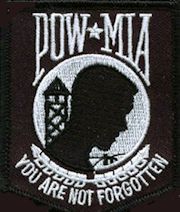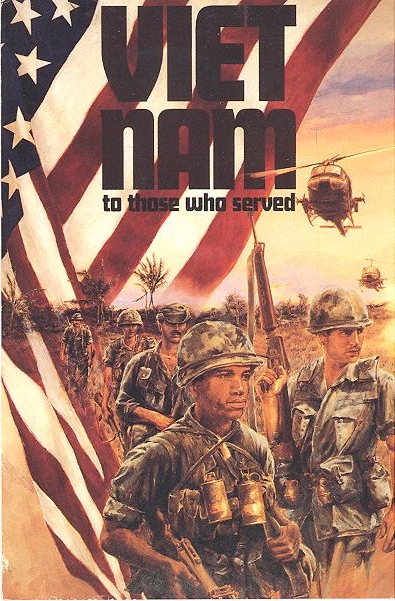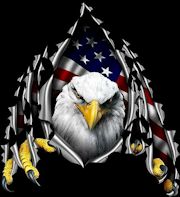|
The “I-missed-Vietnam” Guilt “The day I turned 19, I went down for my physical and had my first and only experience of Army life. I took with me a letter from Dr. Murphy, my childhood doctor, describing in uncompromising detail the asthma that had been a major part of my life up to 16.” Thus begins an article by Christopher Buckley in the September issue of Esquire magazine – an article that should spur millions of members of a generation of American men to question a part of their lives that they had thought they put behind them long ago. Buckley – the son of conservative columnist William F. Buckley Jr. – describes in the article how he had received a medical deferment from the Army, and thus how he had escaped going to Vietnam. The article is titled “Viet Guilt, ” and it addresses itself to those millions of young American men who did not go to Vietnam – and who are beginning to realize, all these years later, that by not going they may have proved something about their own lack of courage – their own, lack of manhood, if you will – that ought to make them very uncomfortable. Enough words have been devoted to the moral issues of the war. The point that Chris Buckley makes is that, if the truth were really to be told, most of the men who managed to stay home from Vietnam did not do so for reasons of morality alone. Their real reason for not going was that they did not want to die, did not want to get shot at. And they found out that there were many ways to avoid Vietnam. Young men of my generation got out of Vietnam because of college deferments, because of medical deferments, because of having a “lucky” number in the Selective Service birthday lottery that was initiated toward the end of the war. Three million men of fighting age went to Indochina during the Vietnam War; 16 million men of fighting age did not. Buckley was one of the men who did not – and I was, too. Reading his article made me realize the truth of the emotions I have been feeling lately about that particular subject. I sense a strong feeling – “shame” is not too strong a word – among many men who did not go to Vietnam, and perhaps now is the time to bring that feeling out into the open. Those of us who did not go may have pretended that we held some moral superiority over those who did, but we must have known – even back then – that that was largely sham. A tiny, tiny minority served jail terms – the rest of us avoided the war through easier methods. The men who went to Vietnam were no more involved with the politics of the war than we were. They were different from us in only two important ways: They hadn’t figured out a successful way to get out of going, and they had a certain courage that we lacked. Not “courage” as defined the way we liked to define it; not “courage” in the sense of opposing the government’s policies in Vietnam. But courage in an awful, day-to-day sense; courage in being willing to be over there while most of their generation stayed home. When I meet men my age who are Vietnam veterans, I find myself reacting the same way that Chris Buckley indicates he does. I find myself automatically feeling a little lacking. “I have friends who served in Vietnam…” Buckley writes. “They all saw death up close every day, and many days dealt with it themselves. They’re married, happy, secure, good at what they do; they don’t have nightmares and they don’t shoot up gas stations with M-16s. Each has a gentleness I find rare in most others, and beneath it a spiritual sinew that I ascribe to their experience in the war. I don’t think I’ll ever have what they have, the aura of I have been weighed on the scales and have not been found wanting, and my sense at this point is that I will always feel the lack of it…” I think many of us are just beginning to realize that. I know when I meet those men of my generation who did serve in Vietnam, I automatically feel less worthy than they are; yes, less of a man, if you want to use that phrase. Those of us who did not have to go to Vietnam may have felt, at the time, that we were getting away with something; may have felt, at the time, that we were the recipients of a particular piece of luck that had value beyond price. But now, I think, we realize that by not having had to go we lost forever the chance to learn certain things about ourselves that only men who have been in war together will ever truly know. Our fathers learned those things in World War II; our sons, God forbid, may learn them in some future conflict. But we – those of us who did not go – managed to avoid something that would have helped form us into different people than we are now. Buckley writes “by not putting on uniforms, we forfeited what might have been the ultimate opportunity, in increasingly self-obsessed times, of making the ultimate commitment to something greater than ourselves. The survival of comrades.” But I think it may go even beyond that; I think it may go to the very definition of our manhood. I know that when I meet a man who, it turns out, has served in Vietnam, part of me wonders whether he is able to read my mind. I don’t know how widespread this feeling is among men of my generation who didn’t go; but I can testify that, at least for some of us, it’s there, all right. WELCOME HOME VETERANS! Secretary of State Colin Powell, a Vietnam combat veteran and former chairman of the Joint Chiefs of Staff, has often expressed anger about the class gap between those who fought in Vietnam and those who did not. “I am angry that so many of the sons of the powerful and well-placed managed to wangle slots in Reserve and National Guard units,” he wrote in his 1995 autobiography, My American Journey. “Of the many tragedies of Vietnam, this raw class discrimination strikes me as the most damaging to the ideal that all Americans are created equal and owe equal allegiance to their country.” By James Bamford for USA TODAY
|
NOTICE:
After September 2026, I will no longer be hosting our entire website. This includes military news, the Silver Spur sites, nor our racing pages. After 29-years it will be time to close it all down. Be well. – Roger ‘Bear’ Young, Spur webmaster
-

In Honor of
Sgt. Gregory Antunano
KIA-BNR Cambodia, 24 July 1971 Visitors:
Visitors Today:
Site Search
-
Recent Posts
- Cobra hydraulic test document found
- Robert Dibbern Obituary 2024
- Presidential Citizens Medal Awarded to Diane Carlson Evans and Joe Galloway
- Mel Gibson on Hal Moore
- Silver Spur 35, John Knox, Receives Distinguished Flying Cross on August 29th, 2024
- Charles Stutzman’s Passing, Silver Spur 13
- Vietnam War 1965 : Camp Holloway Attack & Response : Operation Flaming Dart
- Vietnam War Veterans Day 2024
- ‘Drafted! My Year In Vietnam’ by Spur 37, Morgan Miller
- Veterans Day 2023
- Flying the Freedom Birds: Flights Home
- National Vietnam War Veterans Day – March 29th 2023
- In The Beginning…
- Bottoms Out!
- Merry Christmas by Pam & Roger
- Huey Helicopters UH-1 – Compilation of genuine Vietnam War color footage
- Veterans Day Tribute
- Veterans Day 2022
- Display Room Tour of the Tomb of the Unknown Soldier Exhibit at Arlington National Cemetery
- New Base Names Honor Vietnam Service Members
Recent Comments
- Vernon J Gregory Jr on Guest Book
- Daniel Murphy on Guest Book
- Jan A.Busto on 2020-2023 Silver Spur Site Sponsors!
- Jan Busto on 2020-2023 Silver Spur Site Sponsors!
- josh gonzalez on Guest Book
- Bobby oller on Guest Book
- Tom hare on Guest Book
- Jeremy Jennings on Guest Book
- bobby oller on Guest Book
- Gary L. Swartz Crewchief 962 and 934 on Charles Stutzman’s Passing, Silver Spur 13
- Roger Young on Charles Stutzman’s Passing, Silver Spur 13
- Jeffrey Rosborough on 2020-2023 Silver Spur Site Sponsors!
- Jeffrey Rosborough on 2020-2023 Silver Spur Site Sponsors!
- Terry Shulze on ‘Drafted! My Year In Vietnam’ by Spur 37, Morgan Miller
- James Lytle on Guest Book
Archives
Categories
External Links:
Spur Internal Links





I had a best high school friend who’s mother paid a doctor to certify he had a bad knee -- that was his way out -- yet he slalom skied, both water & snow and still was the last I heard.
After returning from Nam he approached me and said he felt guilty. My retort was, “That’s something you have to live with.” Our friendship was never the same after serving with some of the finest & most courageous soldiers on earth.
Bear, I agree with you but I also never got over the feeling that I should have done more, been more diciplined, and saw only occasional close combat (more when in D troop) than the scouts, and other avaitors that seemed to be fearless and took so many losses and injuries. I was never wounded and I have always thought that somehow I just did not excell at the mission . I was never trained for combat but was a clerk before arriving in RVN. I wanted to be a combat trooper and was assigned to D troop first as a 11D for 6 months I tried to play catch up in learning the skills of a combat soldier but I don’t think I ever achieved the level of my fellow troopers. In A troop I was promoted to Squad leader and again my Skills were never at the level that I felt cofident but I must have had a Guardian Angel as I never got any of my men killed or injured with my incompetence. I guess that what I am saying is that even those of us that did go to Vietnam also live with some regrets and dissapointment with our past. I hope that my experience was unique and that most of my fellow troopers do not have this regret. I do want to say that I am proud of my decision to serve and to volunteer for Vietnam duty. Al La Grange, A Troop 3/17th Air Cav, Rifles Squad leader, RVN -- January 1968-March 1970 PS: What ever good I did to further the mission was due to the Brave men I served with in the 3/17th.
Allan, thanks for the heartfelt comments. Many of us feel we could have possibly done more but we answered the call when our nation was at war. We were surrounded by true heroes in A Troop! Take care my brother.